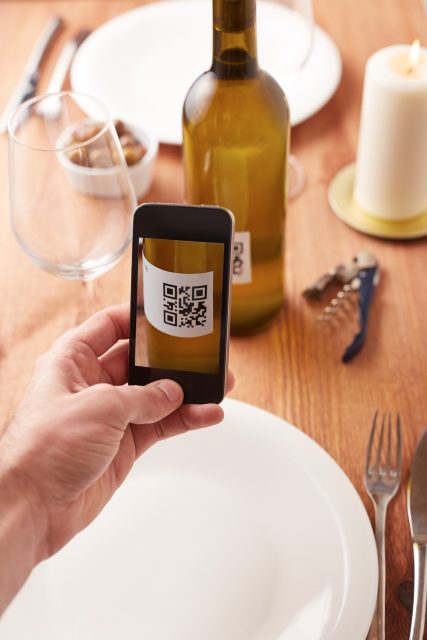Are digital QR codes the solution to deposit return schemes?
Major retailers including Co-op and Ocado are trialling digital barcodes on products ahead of the introduction of deposit return schemes (DRS) across the UK, but, as db finds out, their implementation may come too late for the DRS roll-outs.

Ocado began its partnership with software company Polytag, responsible for developing the QR code technology, late last year, with Co-op following suit in April 2023.
the drinks business spoke to Alice Rackley, Polytag CEO, this morning about the partnerships, and about whether the technology could be used to streamline the DRS roll-outs, which have caused major concern among both alcohol retailers and producers.
Scotland’s return scheme has been delayed until 2024 due to major pushback from the trade. However, even with the extended preparation period, Scottish retailers have threatened to end online sales in face of an ‘unworkable’ scheme.
Ocado and Co-op have partnered with Polytag to trial the digital system on plastics, using the QR codes and an app available for people to download giving them rewards for correctly disposing of plastics in their recycling bins.
As such, the partnerships are yet to directly tackle the looming DRS implementations, but Rackley believes this is the next step.
“Our technology has been developed to enable brands to prepare for digital deposit return schemes, and Ocado absolutely are involved with us for the digital deposit return scheme reasons,” she told db this morning. “They don’t want to be a takeback point. They don’t want their drivers who stand on the doorstep dropping stuff off to have to take empty plastic back, and under the current regulation that would be a requirement, so that’s one of the key reasons for them getting involved in working with Polytag.”
Digital QR codes can be easily introduced to glass packaging via adhesive paper labels, Rackley explained, but the company is yet to have “any brands interested in doing it”.
And canned products represent a different challenge. Rackley said: “The one nut we haven’t managed to crack is cans, and that’s simply because the canning industry are reluctant to let any trials take place. Not that it can’t be done. It’s just we haven’t managed to find a partner to test it.”
Partner Content
Polytag met with Circularity Scotland, the country’s DRS scheme administrator, in January this year to discuss the potential of using the technology for its implementation, Rackley revealed.
“We talked them through our solution and had a four hour workshop with them,” Rackley said. “We were pleasantly surprised that we were invited to a workshop and they were very open to our technology.”
However, no concrete plans have been made ahead of the roll-out.
“There is a role for digital at some point in the future, but quite how quickly that happens I don’t know and they don’t know,” she said.
Rackley criticised parts of the upcoming schemes which could put undue economic pressures on local councils. “Reverse vending machines is a destruction of council revenues by stealth, and not many people are talking about that,” she told db. “It’s a another really important reason why digital should be seriously considered because digital will allow councils to maintain custody of that high value material at curbside.”
Using digital technology would also make for an easier system, something Rackley likens to “using cash machines versus doing mobile banking”.
She said: “We definitely think that a hybrid solution should be a consideration. All of the work and the partnerships that we are progressing bring us closer to a situation where digital can be part of a successful deposit return scheme.”
Scotland is due to roll-out its scheme in March 2024, with no digital scheme yet in place, meaning it remains to be seen whether the technology could indeed be implemented in time.
Related news
Bourgogne Wine Board appoints Michel Barraud as new co-president




